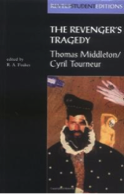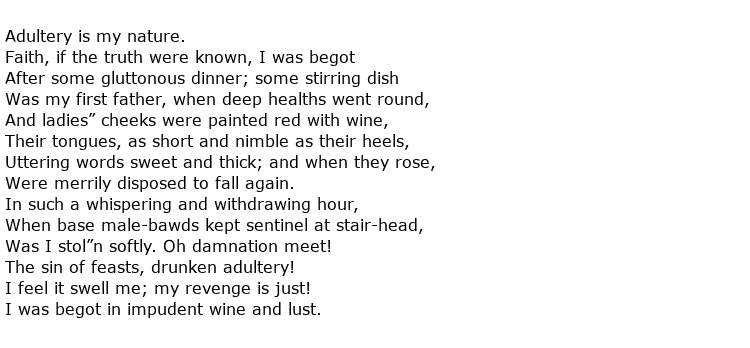 Cyril Turner the English writer, soldier and diplomat of the Jacobean period is best known for two tragedies that were published in the first decade of the 17th century. The first was
Cyril Turner the English writer, soldier and diplomat of the Jacobean period is best known for two tragedies that were published in the first decade of the 17th century. The first was

and then, four years later,

although Revenger’s has been jointly attributed to another playwright by the name of Thomas Middleton. This powerful play, written in verse, is full of macabre imagery.
It is believed that he was born sometime around the year 1575, in County Cork, Ireland to English parentage. Reports suggest that his father was Captain Richard Turner who was a water-bailiff at the time but went on to become lieutenant-governor of Brielle in the Netherlands. This would certainly tie in with Tourneur’s confirmed service as a soldier and diplomat, over a number of years. In 1625 he was appointed to the prestigious position of the Council of War Secretary for the naval campaign against Spain known as the Cadiz Expedition. Even though the position was cancelled, Tourneur sailed to Cadiz anyway in the company of Sir Edward Cecil. Unfortunately this expedition was a disaster in many ways and many of the men aboard ship, including Tourneur, became grievously sick and were offloaded at Kinsale, County Cork as the ship made for home.
During the decades before he had been a prolific writer of, usually, serious pieces of work including the above mentioned plays and an allegorical poem named

which was written in 1600. He was commissioned to produce an elegy about the passing of Prince Henry, the son of King James I, this being written in 1613. Leaning on his experiences with the military in the Low Countries he wrote another elegy, although it was called an

on one of the senior commanders in that region, Sir Francis Vere. Tourneur depicted his subject as

and critics have compared this piece to idealistic poems written by the likes of William Wordsworth and Geoffrey Chaucer.
It is generally accepted that he was

as evidenced in morality-themed plays such as The Atheist”s Tragedy. One should not, though, forget that Middleton’s claims to authorship are strong even though Tourneur laid strong counter-claims to at least part-ownership of this and other works. While such works were popular in the 17th century, due to the religious mood of the time, they have not aged well and very few performances have taken place in modern times.
It is, therefore, surprising to note that one of his poems was called Adultery is My Nature. It is a short piece about the joys of over-indulgence in wine by both author and the ladies in his company whose cheeks are “painted red with wine” and who, when they would try to get up, would promptly fall back down again! Here is the poem:

Cyril Tourneur died on the 28th February 1626 at the age of 50. As mentioned above, he was put ashore in Ireland towards the end of 1625 in very poor health and he never recovered from this ill-fated expedition to Cadiz.

